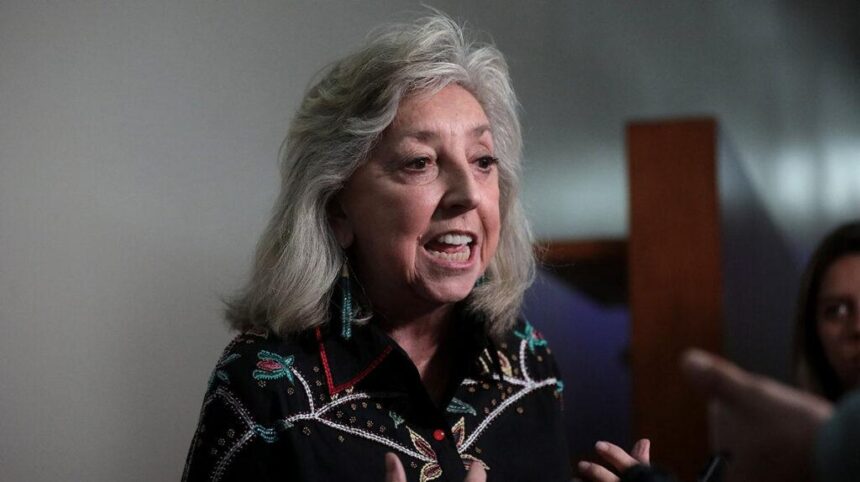State Representative John Titus Leads Community Dialog on Gambling Tax Reform
Addressing Community Concerns: A Call for Fairer Gambling Tax Policies
Yesterday, State Representative John Titus hosted a pivotal town hall meeting to confront escalating worries surrounding recent modifications to gambling tax legislation. The gathering attracted a broad spectrum of participants,including local entrepreneurs,residents,and industry advocates,all intent on exploring viable solutions to amend the newly enforced tax framework. Titus highlighted the significant economic repercussions these policies could impose and committed to championing reforms that align more closely with the community’s welfare.
Economic Strain on Local Gaming Businesses
During the forum, Titus underscored the pressing necessity to overhaul the current gambling tax system, which many community members argue disproportionately impacts small and family-run gaming enterprises. Attendees expressed alarm over shrinking profits and the looming threat of gaming venues relocating,potentially leading to job losses and reduced municipal revenues. Titus reassured the audience that efforts are actively underway to engage state legislators, emphasizing the broader economic and social consequences of the tax structure and advocating for a more balanced, growth-oriented approach.
Community Priorities for Tax Reform
- Lowering the steep tax rates burdening small-scale gaming operators
- Implementing targeted tax relief programs for family-owned gaming businesses
- Increasing transparency and accountability in how tax revenues are allocated to local development projects
Comparative Tax Burden Analysis
To better understand the financial impact, the table below contrasts current tax rates with proposed reductions, illustrating potential annual savings for various gaming business types:
| Type of Business | Existing Tax Rate | Suggested Tax Rate | Projected Annual Savings |
|---|---|---|---|
| Small Casinos | 15% | 7% | $120,000 |
| Bingo Venues | 12% | 5% | $40,000 |
| Arcade Facilities | 10% | 4% | $25,000 |
Evaluating the Effects of Current Gambling Tax Regulations
The existing gambling tax policies have ignited considerable debate among stakeholders, with many asserting that the financial demands imposed hinder local economic vitality. Small gaming businesses, in particular, face challenges in maintaining profitability, which critics argue dampens investment enthusiasm and curtails employment opportunities within the sector.Participants at the town hall pointed out the imbalance between gambling-generated revenues and the limited reinvestment into community programs, calling for a more equitable distribution of funds.
Primary Issues Highlighted by Stakeholders
- Tax rates substantially surpassing those in comparable regions
- Insufficient funding allocated to addiction prevention and public health initiatives
- Complex administrative procedures increasing compliance expenses
- Risk of gaming operators relocating to states with more favorable tax environments
Policy Impact Overview
| Policy Element | Current Situation | Recommended Adjustment |
|---|---|---|
| Tax Rate | 35% | 20-25% |
| Compliance Costs for Operators | High | Moderate |
| Investment in Community Programs | Minimal | Enhanced Funding |
| Economic Development | Stagnant | Stimulated Growth |
Proposed Approaches to Amend Gambling Tax Legislation
Representative Titus presented a complete plan aimed at reversing the unfavorable tax policies affecting the gambling sector.Central to this initiative is the engagement of a broad coalition comprising business owners, community advocates, and employees to build robust public backing. Titus stressed the importance of focused lobbying efforts targeting influential lawmakers to communicate the economic hardships imposed by the current tax regime. Complementing grassroots mobilization, the campaign will leverage data-driven arguments to demonstrate the advantages of reform.
Key Tactics for Advocacy
- Raising public awareness through strategic use of social media to amplify reform messages
- Partnering with industry groups to consolidate efforts and unify dialogue
- Conducting legal analyses to identify potential challenges based on constitutional or procedural grounds
- Hosting community forums to facilitate dialogue and collect firsthand accounts from those impacted
Strategic Objectives and Expected Results
| Strategy | Primary Goal | Anticipated Outcome |
|---|---|---|
| Legislative Advocacy | Influence Policy Makers | Revised Tax Legislation |
| Public Engagement Campaigns | Mobilize Community Support | Broadened Advocacy Base |
| Legal Examination | Assess Regulatory Legitimacy | Potential Policy Reversal |
Unified Community Efforts: The Key to Legislative Success
The town hall highlighted the power of collective action, as residents, officials, and advocacy organizations joined forces to devise a coordinated response to the gambling tax challenges. The event reinforced the necessity of sustained collaboration beyond initial discussions, emphasizing that effective policy reform requires a broad alliance encompassing:
- Community advocates to elevate public concerns
- Industry stakeholders to provide financial and operational insights
- Legal professionals to guide navigation through complex legislative processes
- Engaged voters committed to staying informed and active throughout the reform journey
Participants agreed on maintaining momentum through coordinated initiatives such as petition campaigns, targeted outreach, and regular communication with policymakers. This comprehensive strategy aims to ensure that any legislative amendments reflect the diverse interests and priorities of the community.
Action Plan and Leadership Roles
| Initiative | Responsible Group | Timeline |
|---|---|---|
| Community Education Campaign | Advocacy Coalition | Within 30 Days |
| Review of Policy Proposals | Legal Team | Within 45 Days |
| Lobbying Efforts Coordination | Local Government Officials | Ongoing |
| Monthly Public Forums | Community Committee | Monthly |
Conclusion: The Road Ahead for Gambling Tax Reform
As discussions around gambling tax policies gain momentum, Representative Titus’s town hall serves as a catalyst for change, reflecting the community’s growing demand for equitable reform.While the final outcome remains uncertain, the dialogue sparked by this event is poised to influence legislative priorities in the months ahead. Both residents and industry participants will be closely monitoring developments as efforts to reshape the gambling tax landscape progress, balancing economic growth with responsible regulation.










